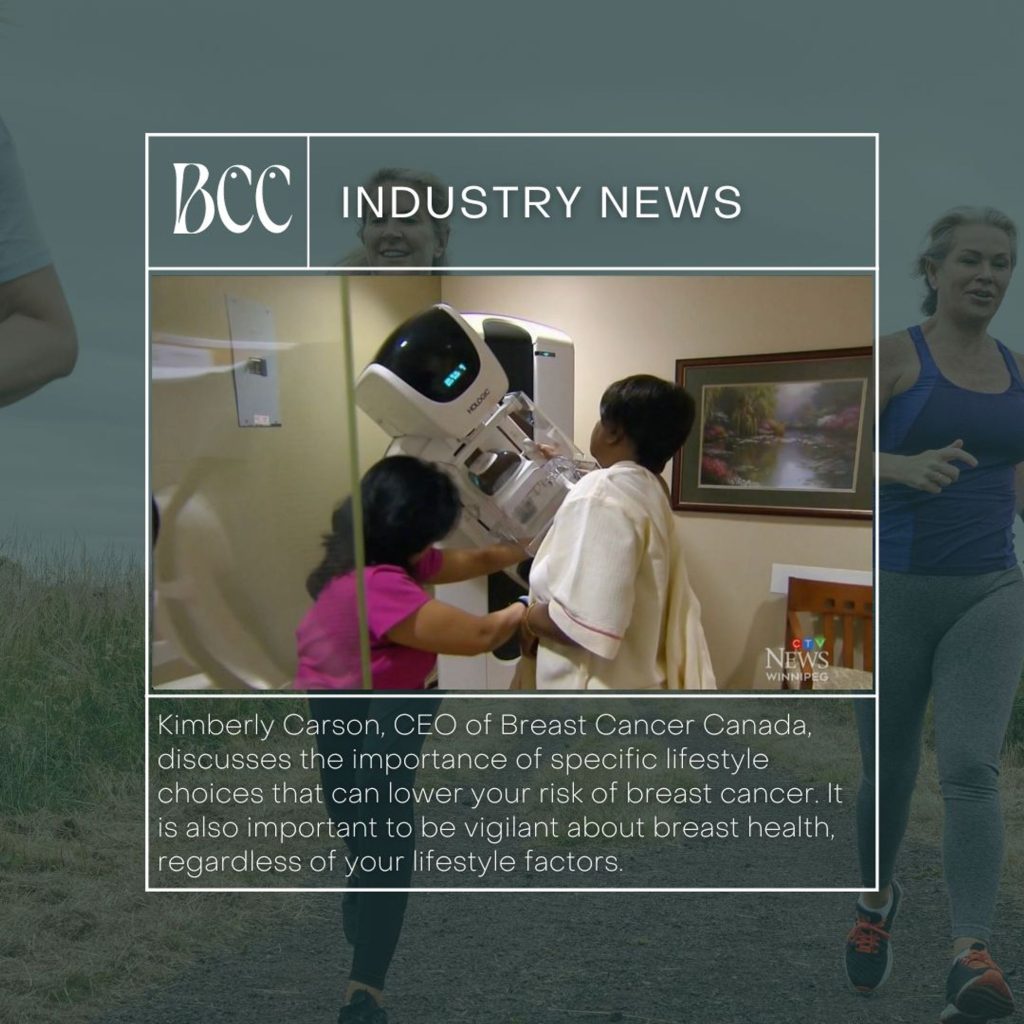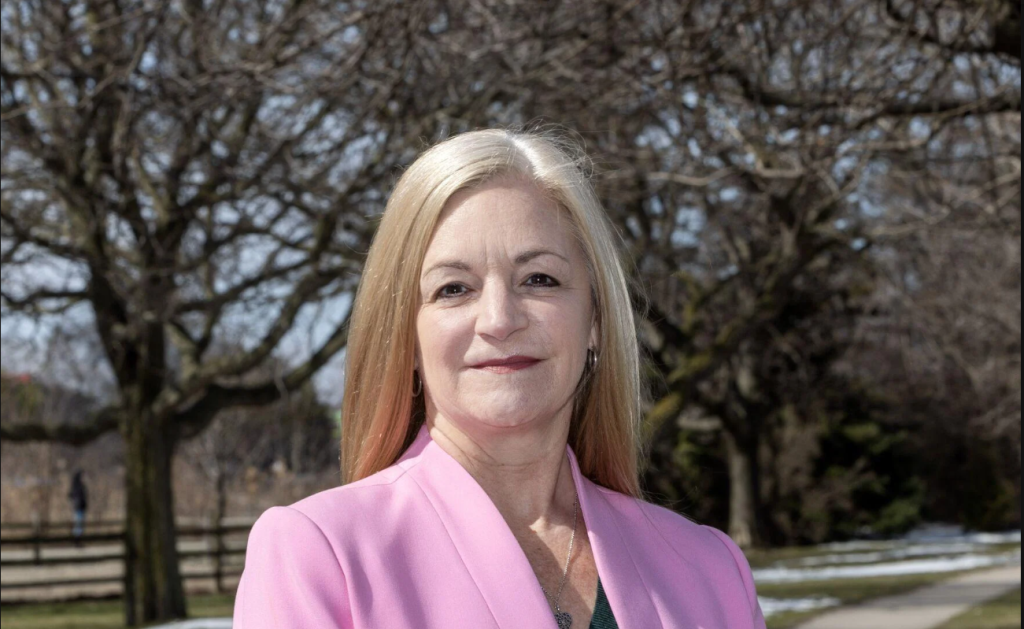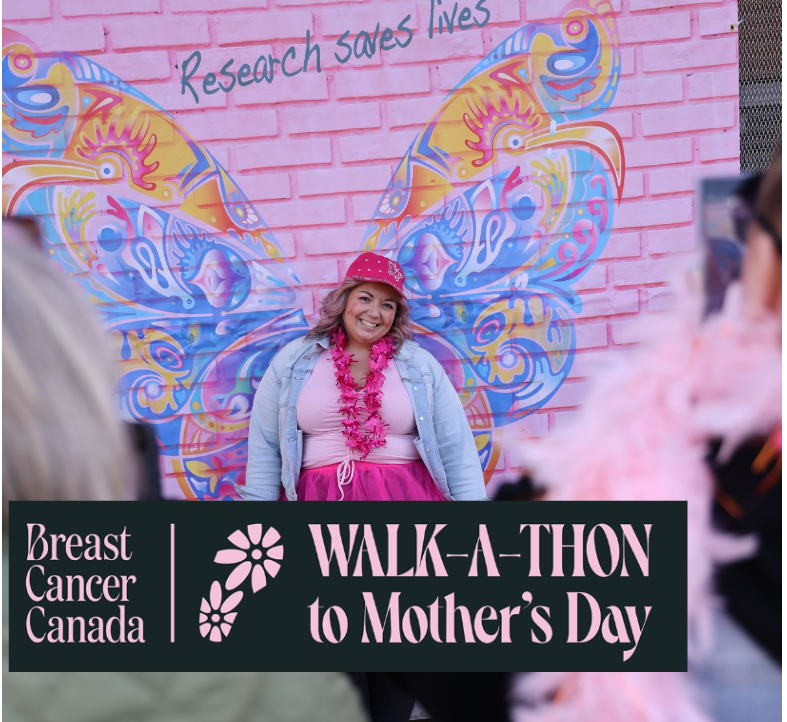1. Who are you? Tell us about yourself.
My name is April Chau, and I am in my second year of a Master’s degree in Medical Biophysics at Western University. I am currently working under the supervision of Dr. Stewart Gaede within the London Regional Cancer Program (LRCP) at the London Health Sciences Centre (LHSC). I graduated from Western University with a BSc in Medical Biophysics and was previously involved in many cardiac imaging research projects with Dr. Ting-Yim Lee at the Robarts Research Institute. I gratefully received the Translational Breast Cancer Research Unit Studentship Award in my first year of Master’s study, which focuses on improving radiation therapy for breast cancer patients.
2. Why is the TBCRU Studentship Award important to you?
The TBCRU Studentship Award plays a very valuable role in supporting my Masters’ education and fostering my research. I want to sincerely thank everyone who has donated to the Breast Cancer Society of Canada to support my research and the research of other students. The award reduces financial limitations and helps leverage our lab’s funding to explore and understand breast cancer radiotherapy treatment options.
3. Tell us about your research. What are you doing and what problems do you hope to solve?
My research focuses on improving the way we deliver left-sided radiotherapy to breast cancer patients, which can cause damage or toxicity to the heart. My research can be broken down into two main parts. First, I have been optimizing the way we assess how well blood flows through the heart after radiation. Our experimental lab model matched the expected dose of radiation received by the heart during standard left-sided breast cancer radiotherapy treatment, which is allowing me to evaluate the performance of MRI to measure the impact of radiation on blood flow and inflammation in the heart. Secondly, I am also working on assessing radiotherapy treatments that may save the heart and other critical organs from unnecessary radiation. The treatment methods that I am currently focusing on include deep inspiration breath-hold (taking a deep breath that moves the heart out of the way during radiation) and volumetric modulated arc radiotherapy (delivers an exact dose of 3D radiation using 360-degree rotation).
4. Why is your research important? How can your research be applied in the real world?
Advances in radiotherapy have improved the lifespan of breast cancer patients. However, later in life, radiation-induced heart disease may become prevalent in older patients. My research will allow us to consider new techniques that minimize or eliminate heart complications in future cancer patients and provide a non-invasive technique to examine patients after radiotherapy to review their treatment outcomes.
5. Why are you passionate about breast cancer research?
I have always been interested in translational research that has the potential to impact real clinical environments. The idea of being involved in research that could help millions of people and potentially cure breast cancer motivates me every day. My supervisor Dr. Gaede is a member of the Breast Disease Site team for breast cancer at LRCP, bringing radiotherapy expertise to the clinical team. He and his previous students have dedicated their research efforts to optimizing and evaluating various breast cancer radiotherapy treatments, and their work has been published in high impact journals and shared with the international breast cancer and radiotherapy research communities. I feel fortunate and I cherish every moment I get to learn in this lab. I hope I can be as successful as they are in the future.
6. Why do you think breast cancer research matters?
One in eight Canadian women is diagnosed with breast cancer, which is a large portion of the Canadian population. Every person may know a close friend or relative who is suffering from breast cancer. Research is the only way to lessen the financial burden on patients, save lives and improve the quality of life among countless people and their families who suffer from this overly common disease.
7. What excites you about your work?
My research involves a collaboration of research and clinical expertise across the city of London. Looking back on how much I have learned from everyone during my Master’s journey amazes me. Working with LRCP has also allowed me to meet people from various backgrounds in healthcare and learn from their experiences. A unique part of doing research is that you are exposed to new things every day. And after all your hard work, you can share your knowledge on a national and international scale with like-minded people, and ultimately make a difference.
8. What do you see yourself doing in the future?
My future goal is to be a medical physicist like my supervisor, Dr. Gaede. I want to participate in important clinical research that helps various communities, including the breast cancer patient community, to improve their quality of life.
9. What do you like to do when you aren’t working on research?
When I am not doing research, you’ll find me dancing with my hip-hop intramural team. I have been dancing with intramural teams for two years, and I highly encourage everyone to give hip-hop a try – it’s fun!




